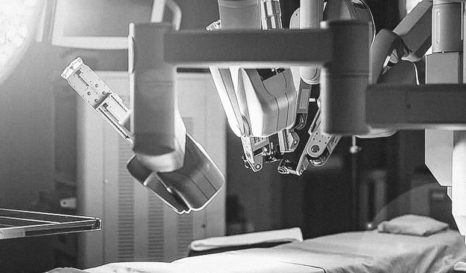Robot surgery
The New Scientist reports that surgical robots are becoming increasingly popular – in spite of little evidence that they are more effective than standard surgery
The NHS has recently announced that it plans to spend £50m on robotic surgical equipment, reports the New Scientist. So why is the NHS so keen on investing in this new tech? Advocates say that robotic surgery reduces the minute tremors of a surgeon’s hand, offers a better range of motion and enables 3D visualisations. It’s also appealing to surgeons, who can use the robotic arms remotely, avoiding the need to stand over the operating table for long periods of time.

The results for the patient are less pain and less damage to surrounding tissue – which means people can leave hospital more quickly and recover more speedily. All of this would be clearly beneficial to the over-pressured systems of the NHS.
Using robots for surgery is also a good marketing tool – high-tech advances in medicine are usually welcomed by patients and society at large.
However, this planned investment comes in spite of numerous warnings that robot surgery might not be the boon it appears to be. In the US, the FDA (Food and Drink Administration) says that there is a lack of evidence for the efficacy and safety of robotic surgery for cancer. In Austria, a recent study showed that there was little evidence that robotic devices were any better in standard surgery for abdomen and thorax operations. And various other studies around the world have failed to find evidence of consistent medical benefits of robot assisted surgery – even claiming that it can slow down the procedures by up to 37 minutes, and that it dramatically increases the cost per operation.
In fact, more and more research is suggesting that robotic surgery is potentially more harmful than beneficial – the FDA’s report cites broken pieces of equipment falling into people, electrical faults, uncontrolled movements during surgery, and shorter survival times for cervical cancer patients.
It seems that, as with any technological advances in medicine, robot surgery needs to be highly regulated and carefully monitored before it is rolled out universally.

